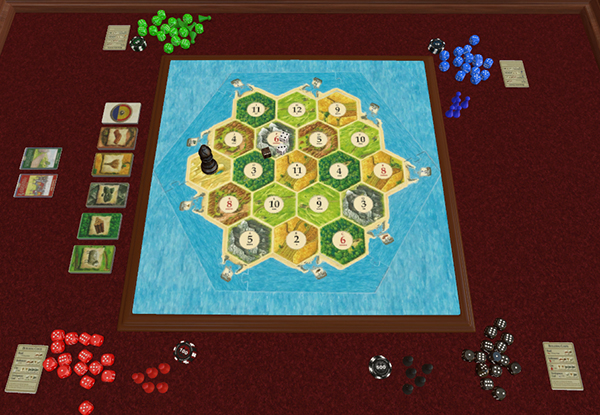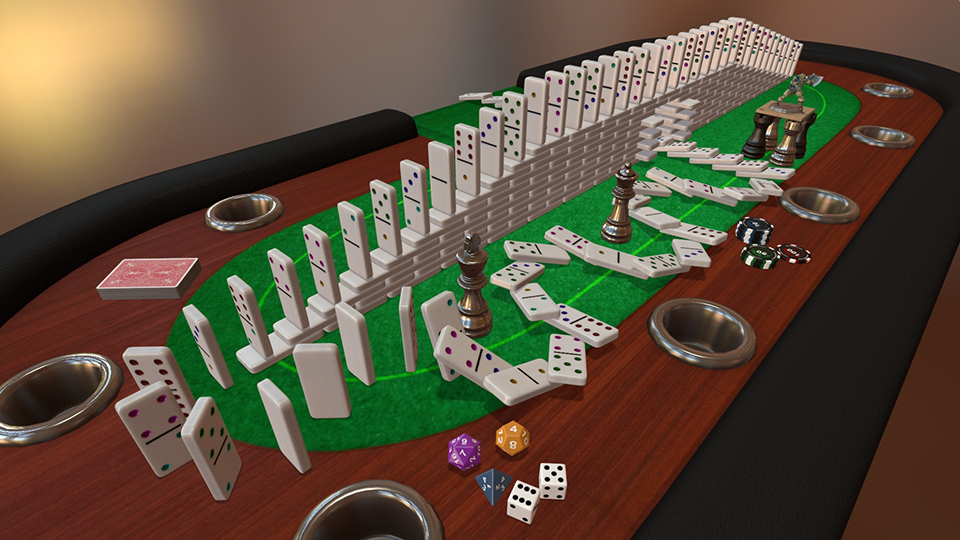 With the advent of three-dimensional graphical rendering in video games, and most notably the release of the seminal Grand Theft Auto III, open-world games, dubbed “sandbox” titles, experienced a huge surge in popularity among gamers—a surge that in many ways continues today. The year 2015 saw the release of a different type of sandbox in Nintendo’s Mario Maker, a game dedicated as much to game creation as it is to actual play. This has been a less popular genre over the course of gaming history, but standout examples have made their appearance throughout the years, as well. Mario Paint, RPG Maker, and even the unique and wonderful storytelling platform Sleep is Death come to mind.
With the advent of three-dimensional graphical rendering in video games, and most notably the release of the seminal Grand Theft Auto III, open-world games, dubbed “sandbox” titles, experienced a huge surge in popularity among gamers—a surge that in many ways continues today. The year 2015 saw the release of a different type of sandbox in Nintendo’s Mario Maker, a game dedicated as much to game creation as it is to actual play. This has been a less popular genre over the course of gaming history, but standout examples have made their appearance throughout the years, as well. Mario Paint, RPG Maker, and even the unique and wonderful storytelling platform Sleep is Death come to mind.
Tabletop Simulator walks the path of those latter titles, but represents a much truer example of a sandbox in a traditional sense. Tabletop Simulator is an unusual, but not a strange concept. It’s essentially a physics engine designed specifically to simulate the experience of sitting at a table and interacting with cards, dice, board games, miniatures, and just about anything else one might play with in a tabletop environment.
The controls are intricate and precise, with keyboard keys or gamepad buttons dedicated to manipulations such as flipping and rotating items, stacking and shuffling stacks of cards or tiles, raising components to eye level for closer examination or reading text, rolling dice, etc. It’s a full suite of controls that, once mastered, makes playing the game at hand feel almost seamless and surprisingly realistic.

I have not personally delved into the creative aspect of Tabletop Simulator, but judging from what is available in the game’s Steam Workshop—a pool of user-created content that is continuously updated by enthusiasts more creative and ingenious than I—the available tools make just about anything possible. I’ve spent hours sampling the Workshop items, and the ways users have implemented various options in the toolset is truly impressive.
Essentially, anything that can feasibly be played on a tabletop can be reproduced in Tabletop Simulator, so what eventually lies in front of a player is a full range of classic board and card games, which are included in the main game straight away, as well as dozens of regularly updated user entries. All of these options can be played online with groups of other eager tabletop gamers via custom servers wherein one participant is the host and the rest connect to that player’s computer to join the game. Both text and voice chat are incorporated into Tabletop Simulator to facilitate matchmaking from the lobby, friendly banter, or heated trash-talking.
Tabletop Simulator is a toolkit, and it works incredibly well to serve the functions for which it was designed. With the glut of content coming out of the game’s Steam workshop, I would go so far as to say that it would be foolish for any board, card, or miniatures gamer to not buy it. Once a player explores the depths of what’s available in this physics sandbox, its value becomes monumentally clear. If you’re not into tabletop games, however, you’re not going to miraculously find the next Call of Duty hidden somewhere inside.



















